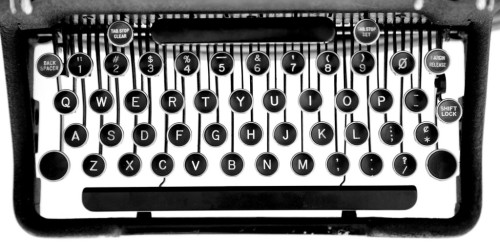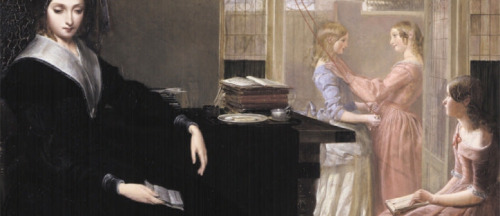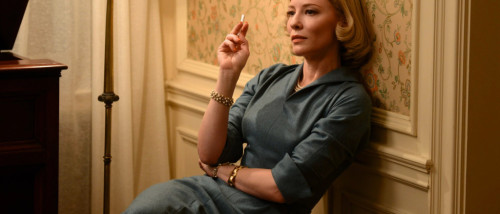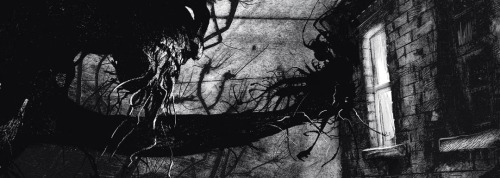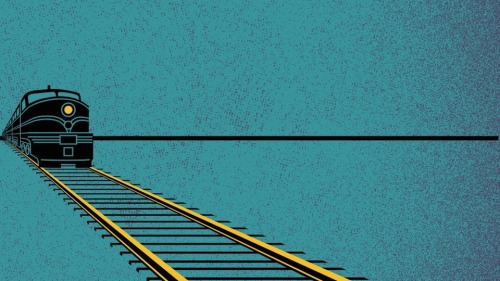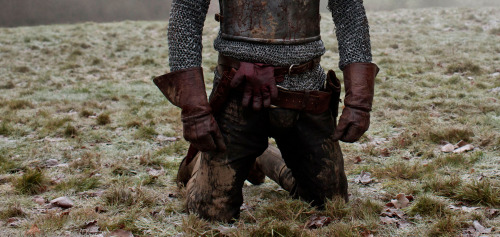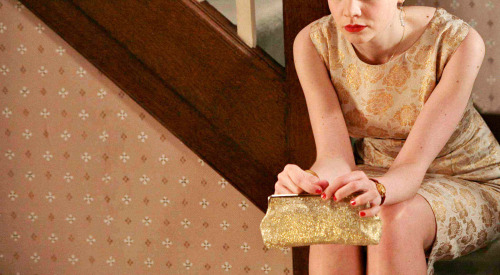#the narratologist
*War and Peace, Leo Tolstoy
*The Well of Loneliness, Radclyffe Hall
*Hedda Gabler, Henrik Ibsen
*White Teeth, Zadie Smith (not yet, but I did read Changing My Mind!)
*Beloved, Toni Morrison
*Between The World and Me, Ta-Nehisi Coates
*The Master and Margarita, Mikhail Bulgakov*Guards! Guards!, Terry Pratchett
*Smoke and Mirrors, Neil Gaiman*Alexander Hamilton, Ron Chernow
*The Woman in White, Wilkie Collins
*The Little Friend, Donna Tartt*Frenchman’s Creek, Daphne du Maurier
*Richard III, William Shakespeare*She-Wolves: The Women Who Ruled England Before Elizabeth, Helen Castor
Going well so far!
BOOK REVIEW: Some Thoughts On the Common Toad by George Orwell
This collection is part of Penguin’s Great Ideas series, which I am steadily working my way through (previously I have read Thomas Paine’s pamphlet “Common Sense” - review here). I adore these little publications; the cover designs by David Pearson are some of the best he has ever done, and the full series is a great overview of some of the most influential essays and manifestos in (mostly) Western history.
Some Thoughts On the Common Toad is one of four George Orwell collections included in this project, and contains eight articles written between 1944 and 1947. Spoiler alert: the titular essay is not actually about toads – it’s about capitalism. …And toads.
Post link
READING LIST: Labyrinths in Literature
There is something about mazes and labyrinths that fascinates me – the sense of mystery while you’re solving a carefully constructed puzzle, the darkness enveloping you more and more as you wander its paths… And I am not alone in this. Many authors have used labyrinths as the setting for their stories, and some have taken it even one step further, creating abstract labyrinths that only exist in the mind.
Are you ready to get lost?
Follow me.
Post link
BOOK REVIEW: Agnes Grey (1847) by Anne Brontë
This book is about a young woman who decides to become a governess and finds the job a lot tougher than she had anticipated. The children refuse to listen to her, their parents blame her for their offspring’s terrible behaviour, and she finds herself increasingly frustrated by the thanklessness of her work.
I’m the same age now as Anne Brontë was when she wrote this book and as an English teacher recovering from a burnout while reading this book, a lot of Agnes’s troubles hit home for me. Some struggles are timeless, it seems.
Post link
BOOK REVIEW: Frenchman’s Creek (1941) by Daphne du Maurier
Frenchman’s Creek is a historical novel set during the reign of Charles II that tells the story of a wealthy woman named Dona who moves to an isolated house in Cornwall with her children to get away from her schlubby husband and the judgmental looks of London society. Finally away from prying eyes and spousal demands, she feels like a weight has been lifted off her shoulders; she revels in the solitude and the freedom it provides her. Dona spends her days lying in the grass and blissfully exploring her surroundings – until she finds a pirate ship hidden in a remote creek near her house. She ends up falling in love with the captain of the crew – brooding, sexy stubble, will draw you like one of his French girls, you know the type – and has to make a decision: does she do what society wants her to do and stay at home with her children or does she leave everything behind for a life of sex love and adventure?
Oh yeah. It’s that kind of book. …Or is it?
Post link
READING LIST: Female Friendships
In honour of Galentine’s Day (what’s Galentine’s Day? Oh, it’s only the best day of the year!), I decided to focus on a topic that is overlooked far too often in fiction: friendship between women. We all know about the Bechdel test, but try putting together a list of books where female friendship is the focus of the story, I dare you. Bonus points if the women in question are not related. It is practically impossible! That said, here are some of my favourite fictional examples of female friendship – the good and the bad. Some of these duos are attached at the hip for life, whereas other relationships go sour in the worst possible way.
If you can think of more titles, please leave a comment!
Post link
BOOK REVIEW: Alexander Hamilton (2004) by Ron Chernow
I will be the first to admit that my knowledge of American history is spotty at best – only the bare minimum is covered in Dutch schools – so if you had asked me one year ago who Alexander Hamilton was, I probably would have said something along the lines of: “That name does ring a bell… One of the founding fathers, I think? Maybe. I don’t know.” One little Broadway cast recording later, I found myself diving headfirst into Thomas Paine and picking up the 800-page biography that started it all. The combined popularity of Chernow’s book and the juggernaut of a musical it inspired has brought Alexander Hamilton right back into popular consciousness in a major way, and I have been watching this development with great interest. What happens when a controversial historical figure gets dusted off and put back into the general public’s spotlight two hundred years after his death?
Look around, look around at how lucky we are to be alive right now.
All right, that’s enough musical talk – back to the actual book.
Post link
I’m not sure how I feel about Goodreads listing politics and war as two of my favourite things to read about.
Post link
BOOK REVIEW: The Price of Salt (1952) by Patricia Highsmith
Before the 2015 movie Carolstarted raking in the Oscar nominations, the general public mostly knew Patricia Highsmith for her psychological thrillers Strangers On A Train (1950) and The Talented Mr Ripley (1955), two stories about mystery and murder. In fact, The Price of Salt is the only one of Highsmith’s novels that does not feature a violent crime – but it is still incredibly suspenseful. Yes, Highsmith introduces a gun in the third act, but there is more to it than that; this story about two lesbians falling in love in 1950′s New York City is set up like a detective. The protagonist, Therese, sets out to solve a very specific puzzle: does Carol love me back? Is there a chance we can be together? Do I dare to put everything on the line for her?
Post link
I’m sorry for the terrible quality of this thing, but I really wanted to show off the final result!
Post link
Book Review: Oranges Are Not The Only Fruit (1985) by Jeanette Winterson
Oranges Are Not The Only Fruit is one of the quintessential queer coming-of-age novels (well, more like a barely veiled memoir, but okay). It tells the story of a young Jeanette, growing up in a strict religious household in a small English town. Because of her upbringing, she has trouble fitting in both at school and in the general community. Her mother bears this outsider status as a badge of honour, but young Jeanette sometimes feels frustrated that some people don’t understand her. And then she falls in love with another girl.
Post link
We tend to think of grief and mourning as maladies of the mind, but the loss can grow and expand until it feels like more like a presence than an absence. In the poem “Death Barged In,” Kathleen Sheeder Bonanno describes her pain as a mysterious figure in a Russian greatcoat who barges in, slams the door, and now makes all her decisions for her:
Even as I sit here,
he stands behind me
clamping two
colossal hands on my shoulders
and bends down
and whispers to my neck,
From now on,
you write about me.
I read A Monster Calls by Patrick Ness and Last Night I Sang To The Monster by Benjamin Alire Sáenz back to back on a whim, only to find out that they have much more in common than just the word ‘monster’ in the title. Both are by incredibly talented young adult authors, both are about troubled families, and in both books, the loss these protagonists so desperately refuse to acknowledge takes on the physical form of a monster, looming over them.
Post link
BOOK REVIEW: Go Set a Watchman (2015) by Harper Lee
I felt bad buying this book.
I felt bad reading it.
And now I feel bad writing about it.
I have avoided Go Set a Watchman as long as I possibly could; every time I saw it in a bookstore, I frowned and looked the other way. I didn’t want to be a part of it. In the end, I did give in. “You’re a literature blogger,” I told myself, “you can’t not talk about this book. You have a responsibility, this is one of things will you have to write about eventually.” So I took a deep breath and bit the bullet. I carried Go Set a Watchman around with me for a week, and every time I took it out, one of my friends or colleagues would point at the cover and say: “I’m so curious! Is it any good?” I have avoided giving a definite answer. “I don’t know yet, I’m only on page six.” “Too soon to say, I’m only halfway through.” Now that I’ve finished it, I can’t get away with this anymore; I have to have an opinion.
My opinion is that this book makes me sad – for so many reasons.
Post link
BOOK REVIEW: The Once and Future King (1958) by T.H. White
This summer, my parents and I went on holiday to Cornwall and visited Tintagel Castle, which was supposedly the place where King Arthur was conceived. It’s a popular tourist attraction, surrounded by gift shops where you can buy your kids a toy Excalibur or Merlin’s pointy hat. Since I love to buy books in the place where they are set or were written, I decided to buy a copy of T.H. White’s The Once and Future King (and a beautiful hardcover edition of Daphne du Maurier’s Rebecca).
I knew that it told the story of King Arthur, that it was on every single list of best fantasy books, and that my sister-in-law, who is an avid fan of Robert Jordan, George R.R. Martin, and Terry Goodkind, had been begging me to read it for years. I figured that it would be an epic fantasy story with lots of drama and violence – which it is. It is also nothing like that at all.
Post link
BOOK REVIEW: Kiss Kiss (1960) by Roald Dahl
If you thought that Roald Dahl’s children’s books were deliciously gruesome (and they are), wait until you see what he has in store for the adults. In Kiss Kiss, Dahl combines horror and comedy to give us eleven memorable short stories. He obviously delights in making his readers feel as uneasy as possible right before pulling the rug out from under them, grinning at the shocked look on our faces. As a teacher, I get to experience some of this joy myself. I am currently teaching this collection to a group of sixteen-year-old students, and every week, I get to watch them as they slowly realise what is going on in each story. One by one, they all suddenly turn to me and go: “Ooohhhhhhh! Oh God, that’s terrible!”
Post link
Top 10 Adoptive Parents In Literature
We all love our Dickensian tales about evil stepmothers and adorable orphans who have to make their own way in a dark world – but sometimes they get lucky. Fiction has given us some of the most loving and supportive adoptive parents you will ever see, and these ten foster families particularly warm my heart.
Post link
BOOK REVIEW: The Bell Jar (1963) by Sylvia Plath
“Sylvia Plath – interesting poetess whose tragic suicide was misinterpreted as romantic by the college girl mentality.”
Annie Hall (1977)
That quote is the perfect illustration of why it can be difficult to say that you love Sylvia Plath, especially for young women; her name and the title of her novel have become synonymous with a whole set of implications neither Plath nor the reader ever asked for.
Post link
BOOK REVIEW: Lucky Jim (1954) by Kingsley Amis
This book tells the story of a middle class white man in his early thirties working as a lecturer on medieval literature who thinks he deserves a better job and a prettier girlfriend, but spends most of his time complaining and drinking instead of actually working for either of these things. Most of the novel is spent making silly faces, lying, avoiding his responsibilities, and playing immature pranks on the people he loathes. In the end, he gets his rewards without making much of an effort and walks off into the sunset, having learned nothing at all.
Yeah.
Lucky Jim has not aged well.
Post link
READING LIST: Postcolonial Rewritings of the Imperial Canon
After my reviews of Wide Sargasso Sea by Jean Rhys (here) and On Beauty by Zadie Smith (here), I decided to dedicate a full post to postcolonial rewritings and reworkings of the Western literary canon.
These are some works that I could think of off the top of my head, but if there are any more out there that I should know about, please let me know in the comments!
Post link

